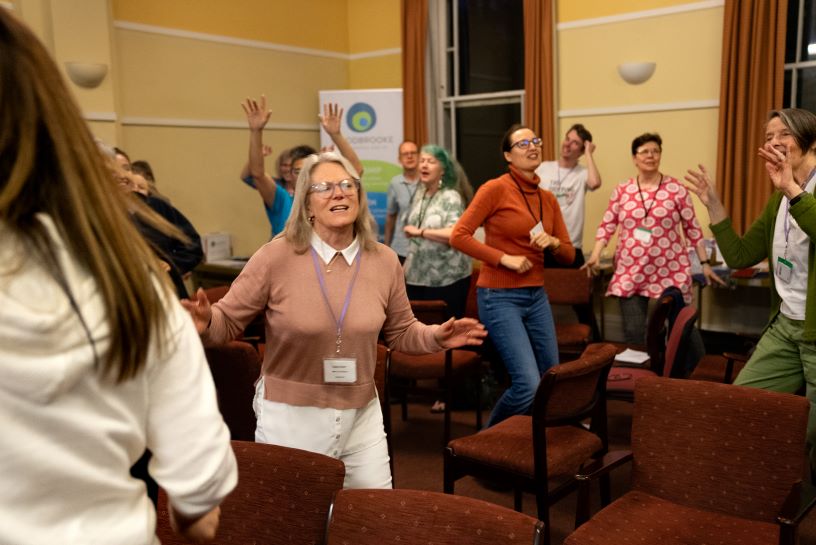European and Middle Eastern Quakers uphold each other at a time of war
Quakers from across Europe and the Middle East gathered in Birmingham this month to share worship and work done, and to build a loving community.

At their second blended annual meeting, 60 Quakers from the Europe and Middle East Section of Friends World Committee for Consultation (FWCC-EMES) met at Woodbrooke, the Quaker study centre.
Work in central Europe has been dominated by the Ukraine conflict and the meeting was deeply moved by video greetings from Quakers in Ukraine and Georgia, as well as testimony on living as a Quaker during wartime.
EMES-FWCC has remained in contact with Ukrainian Quakers, many who have fled to surrounding countries or further afield, and with Quakers in Russia for whom the war has been very difficult.
Quakers in Estonia supplied refugees with Covid tests, temporary accommodation, and food, while a Quaker from Georgia delivered medicine, including much needed insulin, to Ukraine.
Quakers in Poland offered therapy in Warsaw and clothes, medicines, toys and school materials in Bialystok, eastern Poland.
Sustaining Hope: Faith for the Long Term
The keynote address at the meeting, held from 4-7 May, was delivered by Timothy Ashworth, entitled 'Sustaining Hope: Faith for the Long Term' and attendees also heard talks on climate change and Quaker history.
They considered the climate impact of events and travel and were encouraged to work on sharing content in different languages and use social media for outreach.
The meeting also heard that Quaker meetings in the Middle East continue to struggle with the situation in Lebanon and Palestine.
Several members of Brummana Friends Monthly Meeting have left Lebanon with their families due to the collapse of the economy.
And the EMES Annual Meeting 2023 epistle, or letter, said news of Ramallah Friends School in Palestine "highlighted the importance of staying committed to Quaker values and the sustenance they can give when everyday activities and tasks have been disrupted or made hard to accomplish in a situation of frequent military onslaught, checkpoints and unequal civil rights."
Annual reports presented to the meeting showed that Friends House Moscow continues to offer Alternatives to Violence projects as well as supporting Alternativshchik, a website providing information about alternative civil service in Russia.
Clerk of FWCC-EMES Ethel Livermore recorded on behalf of the meeting: "As we return to our own communities and Meetings, we continue to hold these Friends in the Light."